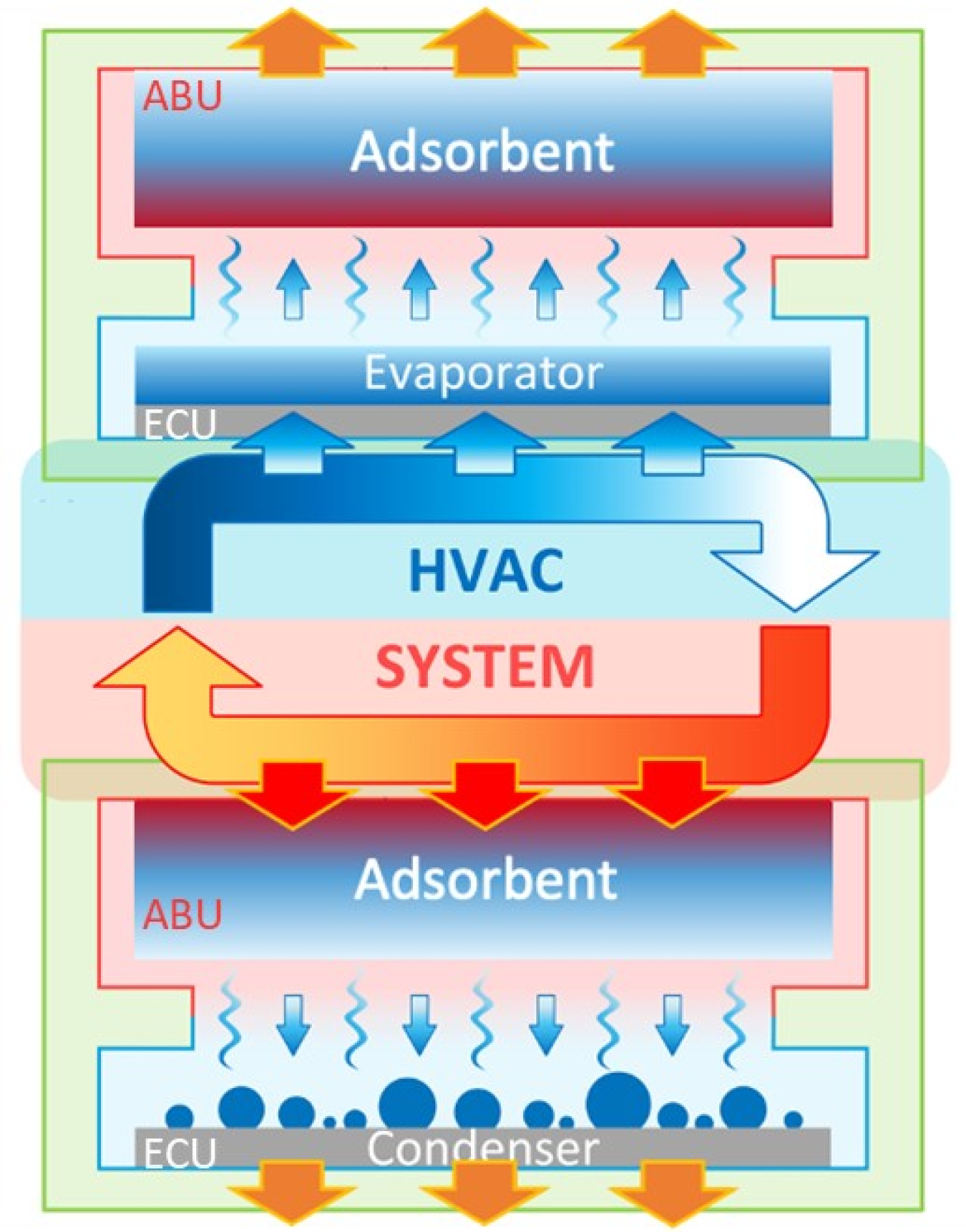Lead Performer: Massachusetts Institute of Technology – Cambridge, MA; Partners: Heat Transfer Technologies – Project Heights, IL, Rheem Manufacturing Company – Atlanta, GA
February 15, 2022
Lead Performer: Massachusetts Institute of Technology – Cambridge, MA
Partners:
-- Heat Transfer Technologies – Project Heights, IL
-- Rheem Manufacturing Company – Atlanta, GA
Total Funding: $3,280,296
DOE Funding: $2,623,595
Cost Share: $656,701
Project Term: October 1, 2021 – September 30, 2024
Funding Type: BENEFIT 2020 Funding Opportunity Announcement
Project Objective
This project proposes a novel thermal energy storage (TES) device, promising high energy densities, low cost and high energy savings. To achieve these targets, the team leverages a unique adsorbent composite in a high-performance architecture consisting of an integrated adsorbent bed unit (ABU) and combined evaporator/condenser unit (ECU) to maximize thermal storage capability and fast cycling.
Several key innovations to help realize the novel TES device include: (1) high water uptake and adsorption enthalpy of the composite; (2) flexible and lightweight thermal binder to enhance the thermal transport; (3) ECU combining the functions of an evaporator and a condenser to reduce the system size and complexity. When integrated with HVAC, water heating, or other applications, the TES device will provide significant energy savings and building load flexibility.
The project will demonstrate a high-performance TES prototype that is driven by waste heat at low temperatures < 70°C, achieves a system energy density ≥ 200 kWh/m3, affects building energy savings of ≥ 50 kWh/m3/day, and has a system cost of ≤ $13.8/kWhth. To achieve the objectives, the team will develop both a comprehensive model and prototype that incorporates the novel composite material with high storage capability and cyclability and high-performance components (ABU and ECU). It will also determine the best path for commercialization and first markets.
Project Impact
Despite significant interest in thermal storage devices, state-of-the-art phase change material (PCM) systems lack high energy densities, while the low temperature of building waste heat cannot charge thermochemical material (TCM) systems. Adsorption-based thermal storage offers new opportunities, in particular with the development of novel adsorbents that enable high water uptake and low desorption temperature. The proposed TES unit has more than 6x higher energy density compared to state-of-the-art PCM solutions. It is also capable of harvesting available waste heat (< 70°C) in buildings, achieving significantly higher cooling cost savings.
The proposed TES system can be readily integrated with current and future HVAC technology to significantly reduce overall building energy usage and costs. In this project, the team mainly focuses on the space cooling applications, but an additional use for the TES is to supplement building heating needs. Integrated with HVAC, the proposed TES device has the potential to significantly enhance existing COP by more than 54-61%, which translates to more than 1.12 Quads saving of the SCOUT projected 3.2 Quads for the 2040 cooling sector.
Contacts
DOE Technology Manager: Sven Mumme
Lead Performer: Evelyn N. Wang, Massachusetts Institute of Technology
Related Publications
S. Narayanan, H. Kim, A. Umans, S. Yang, X. Li, S.N. Schiffres, S.R. Rao, I.S. McKay, E.N. Wang, C.A. Rios Perez, C.H. Hidrovo, Appl. Energy 189 (2017) 31–43.
S. Narayanan, X. Li, S. Yang, H. Kim, A. Umans, I.S. McKay, E.N. Wang, Appl. Energy 149 (2015) 104–116.

